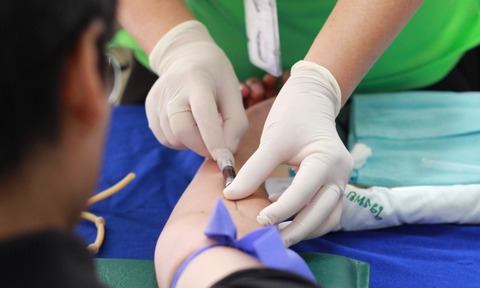Weight loss and growth hormone patients could swap injections for pill suggests research
8 Aug 2025

Creators of a new technology say it could extend the number of therapies that can be administered via pills rather than injections.
Researchers at the University of Bath said they have developed a means to transport proteins across the gut wall to the bloodstream, without damaging the protective layer of cells known as the epithelium.
Study leader professor Randy Mrsny of Bath’s department of life sciences explained it had the potential to transform the lives of patients who had to inject themselves daily.
“Whilst it’s not the first system to replace injections, ours is the first platform to work safely and consistently, delivering the drug at effective doses and using a well understood pathway,” he stated.
“Unlike previous systems, our method doesn’t damage the epithelium and can generically transport a large range of medications, including hormones and cancer treatments that can currently only be injected.”
Writing in the Journal of Controlled Release, Mrsny and his colleagues described how the treatment, tested on laboratory rats, consistently delivered 5-10% of the drug into the bloodstream, a sufficient amount to make it commercially viable.
The researchers linked the drug molecule, consisting of human growth hormone, to a non-toxic carrier molecule derived from a bacteria associated with cholera.
Binding to a receptor found on the surface of intestinal cells, the carrier molecule transported the therapeutic protein across the cells, enabling the drug to reach the bloodstream.
At present, protein-based drugs including antibodies and certain hormones and peptides cannot be taken in oral form without being digested in the stomach.
As a result, many treatments, for cancer immunotherapy, diabetes and growth hormone therapies, must be administered by injection.
This also applies in the case of weight management treatments including Wegovy and Ozempic.
A recent report by life science intelligence firm Evaluate predicted that these and other obesity drugs will comprise around 9% of total prescription drugs sales by the end of the decade.
The University of Bath scientists say they are now working with pharmaceutical firms with the first testing on humans feasible within two years.
Said Mrsny: “This has the potential to transform the lives of patients who currently have to inject themselves daily, such as children who need to take growth hormones.”
Pic: Boonrom Pranidchakan

